Book 10: When They Call You a Terrorist
Schedule TBA

For Discussion:
1. The introduction is titled and closes with the words “We are stardust.” Why are those words important to Patrisse?
2. Growing up, did you interact with the police? How do your experiences compare and contrast with the experiences of Patrisse and her family?
3. In Chapter 2, Patrisse describes her mother as a manager. Why does Patrisse speak of her mother in that way?
4. How do you feel about Patrisse’s father, Gabriel, his extended family, and the path his life took?
5. In Chapter 4, Patrisse writes, “Prisoners are valuable” in reference to their being used for cheap labor. Has your view of incarcerated people changed after reading this book?
6. Patrisse describes the residents of Sherman Oaks, the neighborhood next to where she lives, as “wealthy only at our expense” and “that they didn’t want to be reminded of what it took to keep themselves rich”. What does she mean?
7. Have you ever fought for someone as hard as Patrisse fought for Monte?
8. If you were an elected official, would you try to put laws in place that could have helped protect Monte in prison? If so, what kind of laws? If not, why?
9. In the chapter titled Black Lives Matter, Patrisse and Asha compare the sentence of Richie, 10 years for a non-violent offense, to Brock Turner’s sentence, 6 months for a rape conviction because the judge said he “couldn’t make it in prison”. Is this an example of white privilege? Did reading this book change the way you feel about the term ‘white privilege’?
10. After Patrisse learns she’s pregnant and begins to talk to Future about it, she states, “We are Queer and cannot take having a baby for granted in the way heterosexual couples can.” What does she mean by that?
11. Did this book make you think differently of Black Lives Matter? Why do some people call members of Black Lives Matter terrorists?


